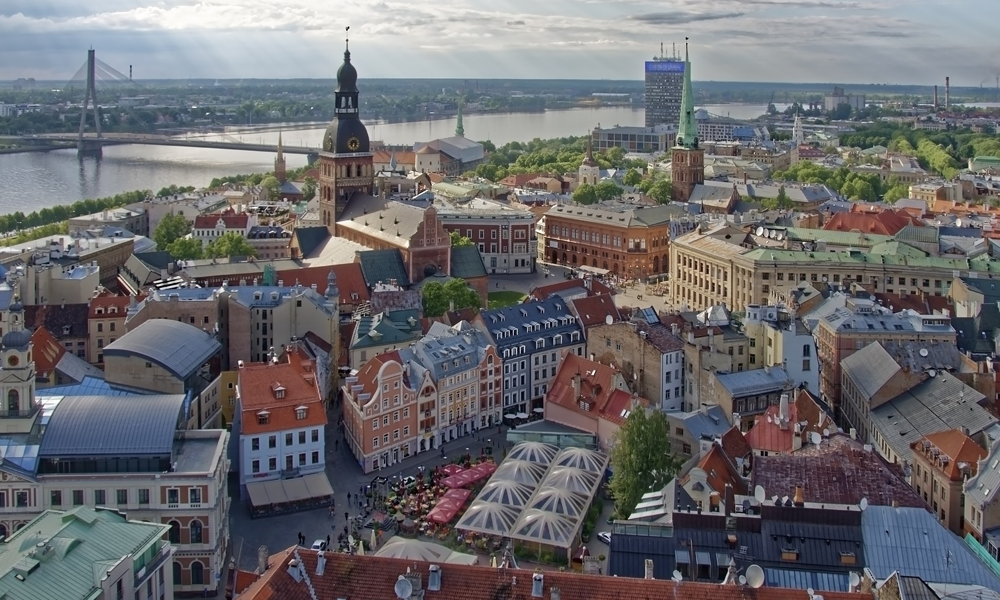Riga's Pilot City Activity: Doughnut Economics Approach for Sustainable Decarbonisation and Citizen Engagement (SEED)

Background
In 2022, the City of Riga developed the Sustainable Energy and Climate Action Plan 2030 (SECAP), aiming to achieve climate neutrality by 2050.
This pilot aims to apply Doughnut Economics (DE) as an integrated, systemic, innovative, inclusive, and participatory approach to achieve rapid decarbonisation.
The pilot will focus on the emissions domain of mobility and transport, as it is the major contributor of CO2, with private cars accounting for 42% of the city’s emissions.
One of the project’s main activities is the development of a Doughnut City Portrait. This methodology will help identify priorities and select activities that align with sustainability and climate action principles, considering social, ecological, local, and global aspects. The second main activity is co-developing and piloting a set of innovative solutions to reduce air pollution and emissions in the city centre (low-emission zone will be implemented by 2027).
By employing the Doughnut model, the project will mobilise citizens and stakeholders actively, fostering systemic change in how people interact with their environment and choose sustainable transportation.
Description of Activities
The activities will primarily focus on addressing emissions in the domain of transport and mobility.
Tools stemming from DE will be developed to:
- Achieve greater participation of citizens, policymakers, and municipal employees in co-creating a City Portrait through an interactive process using a quantitative and qualitative assessment of the ambitions and current state of the city along the dimensions of the Doughnut, focusing on emission reductions. The outcomes will be integrated into policy documents such as the Riga Sustainable Development Strategy and Programme 2030 and the SECAP 2030.
- Put the goal of decarbonisation and emission reduction in the broader systemic framework of a just and sustainable transition.
- Engage citizens in co-developing and piloting a set of innovative solutions to reduce air pollution and emissions in the city’s most polluted area, where the low-emission zone will be implemented by 2027.
It will also build capacity in Riga’s team and municipality departments, enabling them to draw up the City Portrait, moderate co-creation sessions with citizens, and translate outcomes into policies.
Objective
To pilot an integrated, innovative, inclusive and participative approach (Doughnut Economy Model) to achieve rapid decarbonisation.
Are the pilot activities building upon or part of a previous and/or existing activity?
- INTERREG BSR Project CommitClimate: aimed at developing a system dynamics model with a public interface to create and model climate neutrality scenarios in various CO2
- Horizon 2020 Project “EUCityCalc”: A web-based online tool to model climate policy actions and scenarios using a prospective modelling approach.
- Horizon 2020 Project “Atelier”: aiming to develop practical methods and tools for creating positive energy districts.
Which emissions domains will the pilot activities address?
Systemic transformation – levers of change the pilot activities will exploit
Stakeholder types that the city would like to engage in the pilot activities
Transferable features of the pilot activities to a Twin City/ies
- An example of a practical application of the Doughnut Economics theory in cities
- A Doughnut City Portrait employing the “four lenses framework” taking into account social, ecological, local, and global aspects
- Co-design of a low-emission zone, best practices and lessons learned
- Municipal innovation fund
- Capacity building toolbox
This answer is not exhaustive and simply an indicative one.
Enabling conditions that will support the successful replication of your pilot activities in the Twin City
Willingness to experiment and test new approaches in the city, e.g., the Doughnut Economy Model.
This answer is not exhaustive and simply an indicative one.
What does the city want to learn from Twin City/ies?
- Climate communication;
- Changing habits of citizens (e.g., to shift to more sustainable mobility);
- Living labs;
- Nature-based solutions and Carbon offset.
This answer is not exhaustive and simply an indicative one.

